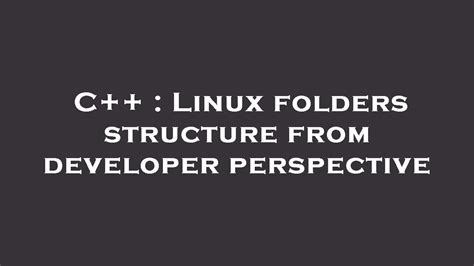The intricate journey of C++ modules adoption reflects not only the complexities of a programming language evolving but also the broader ecosystem’s struggle to keep pace. When C++20 introduced modules with the promise to replace the traditional and cumbersome header/cpp model, it aimed to modernize and streamline development practices. Yet, the transition has been anything but smooth. This slow adoption can be attributed to a variety of technical hurdles and ideological resistance, revealing deep-seated issues within the C++ community’s approach to language evolution and adoption.
Feedback from the developer community highlights the heart of the issue—while some celebrate the potential efficiency and clarity that modules bring to code, many are mired in the practical, immediate challenges of implementation. Issues like incomplete compiler support, the idiosyncrasies of existing build systems, and bugged implementations in major compilers such as GCC have made the road to adoption rocky. Notably, despite the theoretical benefits of reduced compilation times and better separation of code, the shift has been mired by ‘partial’ module support described in developer circles as potentially only beneficial ‘on paper’.
One particularly vocal segment of the community questions the very architecture of the standardized module system in C++. Described as ‘unbelievably complicated and overengineered’, the design has come under fire for being opaque and inaccessible to many developers who are crucial to its widespread adoption. These critiques bring to light a recurring theme in software development: the gap between theoretical improvement and practical, accessible solutions that can be readily implemented in diverse environments.
Beyond the technical debates, the conversation around modules taps into a deeper narrative about language evolution and developer inertia. Some see modules as a necessary step forward for C++, a language often criticized for its complexity and unwieldy legacy features. Others view the sluggish implementation pace as indicative of a more significant issue within programming—existing systems are deeply entrenched, and shifts require monumental effort across tooling, training, and community engagement. The slower-than-expected adoption parallels the broader challenges of innovating within well-established tech ecosystems that are resistant to change.
The extensive commentary from the community not only sheds light on the challenges but also on the potential pathways forward. Suggestions range from improving documentation and aligning module designs more closely with real-world use cases to greater cooperation among compiler developers to standardize module support. This highlights an important lesson for future language features and standards: engagement with the end-user, the developers, during the design phase could lead to more practical and widely-accepted enhancements.
Importantly, the saga of C++ modules is not just about the technical details of a feature in a programming language. It’s a reflection of the broader dynamics of technology adoption and resistance. From corporations that stick to what is tested and known, to developers eager for improvement but wary of the upheavals it might bring, the discussion encapsulates the complex interplay of innovation, utility, and custom in software development. The push and pull between developing new capabilities and maintaining a stable, familiar development environment is a dance familiar in tech circles, resonating well beyond C++.
In conclusion, while C++ modules offer a glimpse into a potentially streamlined future for system programming, their journey underscores critical lessons about innovation in technology. They remind us that advancements are not just about creating capabilities but also about fitting them effectively into the user’s world. With continuing effort and community engagement, modules could still represent a significant step forward for C++, provided the broader ecosystem can overcome its reluctance to embrace change and address the practical realities of implementing such a fundamental shift in how programming is conducted.


Leave a Reply